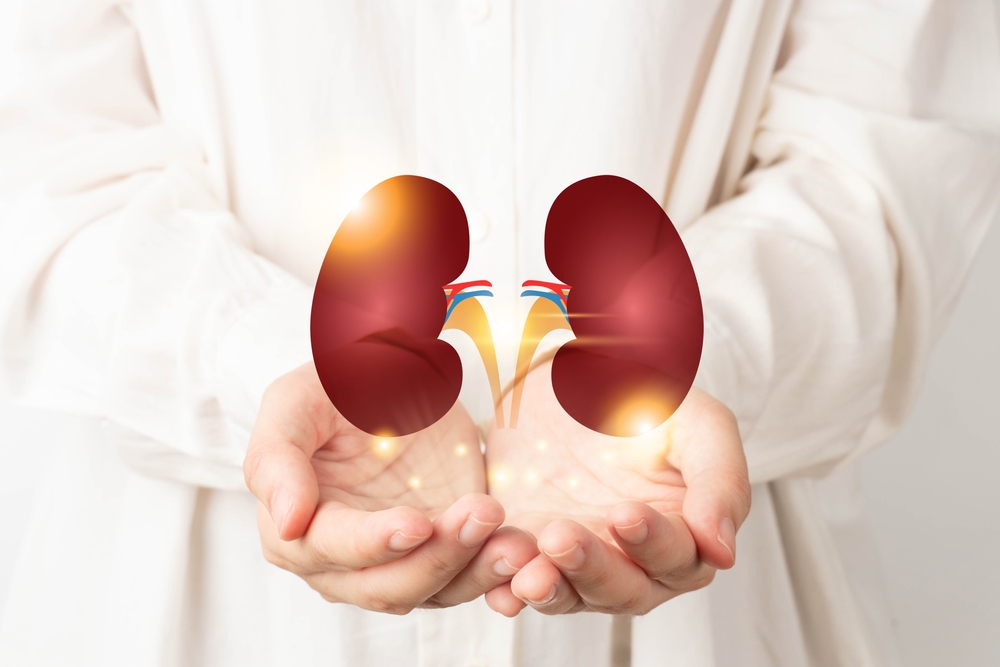Kombucha has gained popularity in recent years as a healthy beverage. While there is limited research about the effects of drinking kombucha for your kidney health, it contains organic acids, which may help support this organ.
Table of Contents
Is Kombucha Good For Your Kidneys?
Kombucha can be good for your kidneys. Your kidneys are responsible for cleansing your blood and converting body waste into urine. Kombucha tea is a natural detoxifier and can help the kidneys function well. Additionally, the antioxidants in kombucha may help protect your kidneys from damage. However, it is not an elixir and should not replace supplements or medicines prescribed by a professional.
There have been no clinical trials on humans using kombucha as medicine, so the exact benefits are unknown. Studies showing the health benefits of kombucha have only been performed on rats and mice.
How Does Kombucha Help Your Kidneys?
Your kidneys are your body’s built-in detoxifier. They take waste that your body naturally produces and help it leave your body. Kombucha aids that process.
Kidney stones form because of minerals and acids accumulating in your urine. Kombucha can help prevent kidney stones thanks to the acetic acid created by the SCOBY during the fermentation process.
Acetic acid helps keep your urine acidic. Acidic urine is less likely to lead to the development of kidney stones. Kombucha also has citrate, which prevents calcium in your body from binding with other minerals, a key component in stopping the formation of stones.
If your kidneys are in good health, kombucha will likely aid their function.

Can Kombucha Harm Your Kidneys?
Many praise this fermented tea for its health benefits, but some experience a few adverse effects. Some believe kombucha may cause lactic acid build-up in your body, harming your kidneys. Since the 1990s, one reported case of a death linked to kombucha has been reported. Officials believe her homebrew was likely too high in acid, which led to severe acidosis.
People with kidney disease or anyone taking Metformin, a popular diabetes drug, may be especially at risk for lactic acidosis if they drink too much kombucha. Always check with your doctor before consuming raw, unpasteurized foods or drinks.
What Organs Does Kombucha Help?
Kombucha may help the liver and the kidneys. Both of these organs work to detoxify your body. Studies in rats show that kombucha helped lower liver toxicity. Maintaining healthy liver and kidney function contributes to overall wellness.
What Are the Health Benefits of Kombucha?
Dietitians may not all agree on the benefits of this fermented tea. However, many believe fermented foods like kombucha offer several health benefits. Kombucha may help:
- Create a diverse microbiome: kombucha’s bacteria, probiotics, and enzymes can help restore and support a diverse microbiome. A robust and diverse microbiome helps improve both mental and physical health.
- Lower cholesterol: kombucha helps metabolize fat, lowering bad cholesterol and raising good cholesterol. It may also help prevent heart disease and lower blood pressure.
- Prevent obesity and assist in weight loss: green tea has been shown to increase your metabolism, leading to weight loss. Since kombucha is low in calories, it is a better choice than drinks with added sugar.
- Protect against free radicals: polyphenols in kombucha help protect cells against damage.
- Stabilize blood sugar: drinking kombucha with a meal helps slow digestion. Since your body processes food slower, your blood sugar stays level.
Kombucha is also good for your digestive system and overall gut health because of the enzymes, probiotics, good bacteria, and organic acids that support the body and the intestines.

To reap all of the benefits of kombucha, keep your homebrewing equipment clean to avoid harmful bacteria and periodically test your kombucha’s pH to ensure it is within a safe range. Refrigerate your kombucha when it’s done fermenting so it doesn’t get too acidic. At the store, buy reputable brands of kombucha so you are sure you are consuming a safe product.
Who Should Avoid Drinking Kombucha?
The FDA has stated that kombucha is safe for most individuals to drink. The following groups of people should talk to a healthcare professional before drinking kombucha because it is raw and unpasteurized:
- Individuals with liver or kidney disease
- Pregnant or nursing women
- Those with a compromised immune system
- Young children
Doctors also warn about drinking kombucha the week before you have surgery since kombucha can alter your blood glucose levels.
What Is the Recommended Amount of Kombucha to Drink Each Day?
The CDC recommends drinking between 4 and 16 oz of kombucha per day. They believe this amount of kombucha will not cause side effects in most individuals. If you are drinking kombucha for the first time, start with 4 oz and monitor your body. If you don’t have adverse effects, you can increase the amount.
Too much kombucha can lead to allergic reactions, yeast infections, nausea, and vomiting. Drink kombucha, along with plenty of water, as part of a healthy diet.

